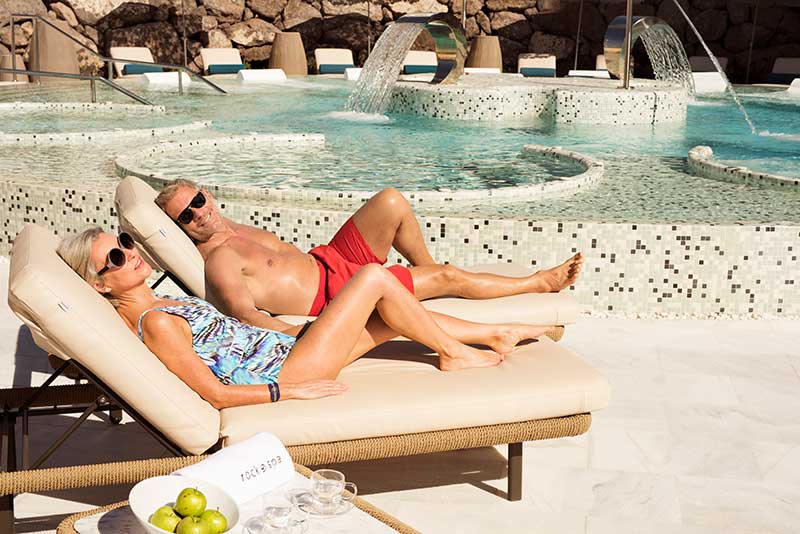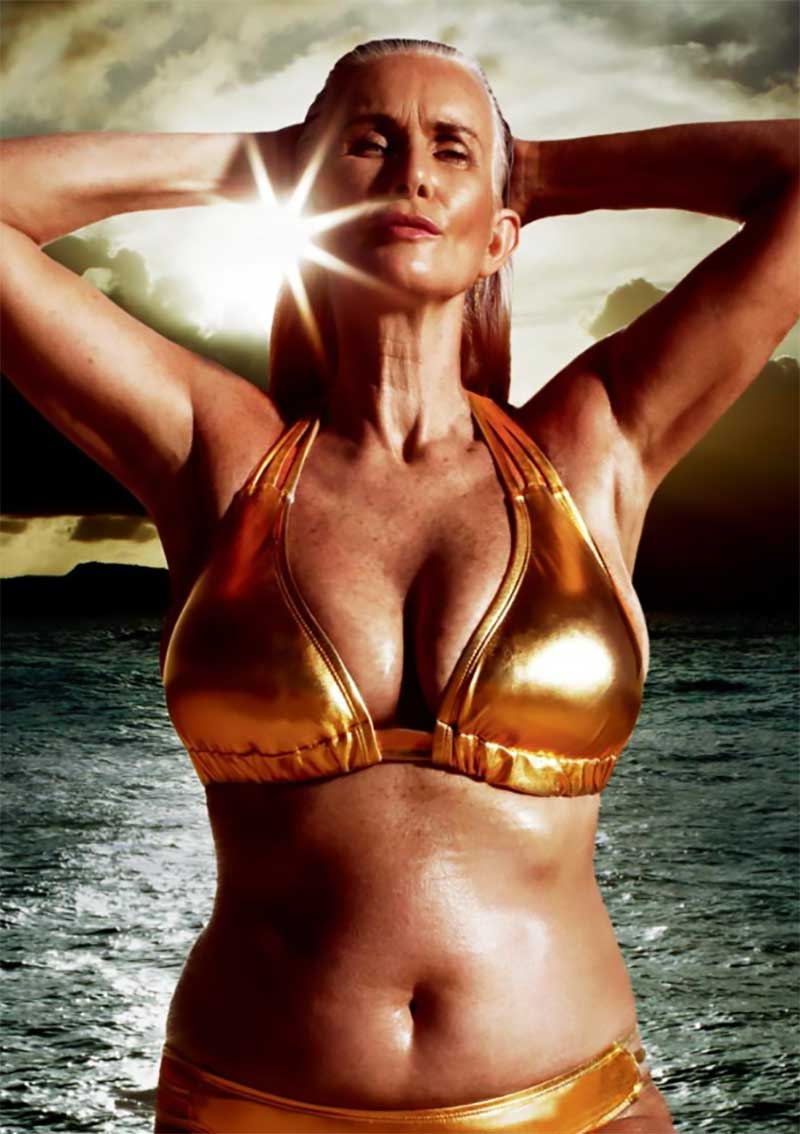
The term anti-aging has been used in the spa, beauty, and wellness sector for so long that we probably don’t even think about it anymore. Anti-aging…it means not getting old. That’s good right?
But, recently some people have been taking a closer look at the terminology, and asking whether the term “anti-aging” conveys what we think it does, or what we want it to.
Allure magazine editor Michelle Lee recently announced in an op ed that the magazine would no longer be using the term. Lee wrote:
“Changing the way we think about aging starts with changing the way we talk about aging.
… Whether we know it or not, we’re subtly reinforcing the message that aging is a condition we need to battle — think antianxiety meds, antivirus software, or antifungal spray.
… Language matters. When talking about a woman over, say, 40, people tend to add qualifiers: ‘She looks great…for her age’ or ‘She’s beautiful…for an older woman. Catch yourself next time and consider what would happen if you just said, ‘She looks great.’ Yes, Americans put youth on a pedestal. But let’s agree that appreciating the dewy rosiness of youth doesn’t mean we become suddenly hideous as years go by.
… we need to stop looking at our life as a hill that we start rolling uncontrollably down past 35.
I hope we can all get to a point where we recognize that beauty is not something just for the young.”
Fashion models are changing the scene
True battle cry, or cry for attention? Some people have suggested that this sort of talk is merely the latter, saying they’ve seen nothing implying a change in customer attitudes or need for adjustment. Others, however, say otherwise – that they have seen it, and that they are in fact rooting for it.
One of these people is Rebecca Valentine, the founder of Grey Model Agency, a UK agency representing a vast age range of models, whose oldest on the roster is 85. Valentine’s models are in demand, walking runways at fashion week and posing for high fashion editorials.
“Things are changing whether people in the beauty industry are ready or not,” said Valentine, on the phone from the UK. “A very good friend of mine owns a big PR agency, and they are no longer able to say ‘anti-aging’ to their clients, they have to talk about pro-aging. And I do think that this is the result of the marketplace, insisting on a new representation of their age group and their demographic.”

Maybe you haven’t seen or felt it, but does that mean it’s not there? Movements don’t usually start with a bang, after all, but with a whisper.
Women are tired of being told they need to look younger
Other signs of a shift include an article in the New York Times calling for a change in the way we talk about aging and women — as the terminology is used almost exclusively in relation to women.
Ashton Applewhite wrote:
“Appearance matters. Adornment pleases. But society’s obsession with the way women look is less about beauty than about obedience to a punishing external standard — and power. When women compete to ‘stay young,’ we collude in our own disempowerment. When we rank other women by age, we reinforce ageism, sexism, lookism and patriarchy. What else we can we all agree on? This is one bad bargain.”
And Michael Bruggeman, Chair of the Global Wellness Institute’s Beauty Meets Wellness Initiative, and CEO of men’s skin care brand Organic Male OM4, has been driving discussion on the subject at round tables around the world. Events have been held in New York, London, and Hong Kong. Bruggeman told me on the phone that there is big support for the idea of changing terminology.
Men are not immune
“I posted the New York Roundtable event on Organic Male’s Facebook page, noting that I think it’s time that we change the language from ‘anti-aging’ to ‘age embracing. The engagement we received was probably the most we’ve gotten on social media since we’ve launched the line in 2010,” said Bruggeman, going on to add, “I think there’s huge interest in looking at beauty from a healthier perspective, and at aging as something to be embraced versus something to be prevented.”
Acknowledging that the language is usually directed at women, Bruggeman said that men are not entirely immune. “I don’t use the term anti-aging often when speaking to men. I do use terms like ‘age delaying,’ ‘age intercepting,’ which implies the same thing. We’ve talked about it as a brand and over time we’re going to be taking it off our packaging and moving to more holistic and positive language.”
Is this really a seismic shift in the marketplace, or a ripple that will soon settle, leaving no trace? It’s too early to tell, to be honest, but if the desires of the consumer drive the market, and not the other way around, it will be prudent to pay close attention.
After all, life spans are extending and are expected to continue to do so (see our report on the Spa of the Future, and longevity-related predictions). As a result, the aging population is growing at an unprecedented rate. According to the National Institutes of Health, the over-65 demographic currently accounts for 8.5% of the global population, and will account for 17% (or 1.6 billion people) by 2050. Are these people all going to want to be told that they need to be 20 years old again, or even that they should want to look 20?
On a personal note, in my mid forties I feel no desire to be 20 again. Having experienced both my twenties and forties, I can say with confidence that I’ll take the forties any day of the week. I’m way better now, than I was then, and so is my life. I love my grey hair and view the lines on my face as souvenirs, not things to be erased. Also, we should note that, as we are human, and not vampires, the alternative to aging isn’t staying young forever, it’s dying. And I’d like to avoid that for as long as possible, which makes me staunchly pro-aging. But I am just one person, and wouldn’t claim to represent a larger market.
Beauty and wellness needs to keep up or be left behind
Rebecca Valentine believes wholeheartedly that the pro-aging movement will grow and that the beauty and wellness industry is going to have to get on board or risk getting left behind.
“They’ll have to if they want to keep their business,” she said. “There’s a huge backlash on social media, and there are so many bloggers and ordinary people having their say, and finding that they have this voice that they’ve never had before that can reach people globally and be not only listened to but responded to. And brands are starting to realize that they have to change because there’s a real push from the marketplace now for true representation.”
And Michael Bruggeman said, “We’re just trying to expand the conversation. We’re speaking with the FDA, with plastic surgeons, and with dermatologists. We’re really trying to look at this from a much broader prospective, and talking about embracing aging and looking at connecting beauty and wellness from a more holistic perspective.”
This will become top of mind for those of us who are fortunate enough to live to be 70, 80, and 90 years old. We will probably start thinking about what it means to age, and whether “anti-aging” is really something to aspire to.
“I think a lot of people in the industry are not thinking about all this yet,” said Bruggeman.
“But we will be.”
This article was originally published in October, 2017.
Spa Executive magazine is published by Book4Time, the world’s most innovative spa, salon, wellness, and activity management software. Learn more at Book4Time.com



